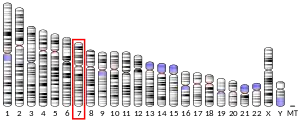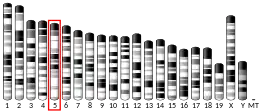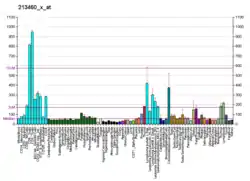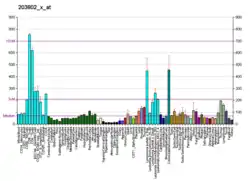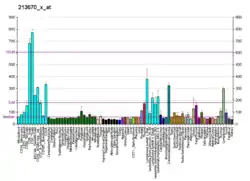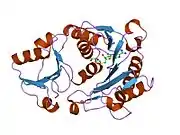| NSUN5 | |||||||||||||||||||||||||||||||||||||||||||||||||||
|---|---|---|---|---|---|---|---|---|---|---|---|---|---|---|---|---|---|---|---|---|---|---|---|---|---|---|---|---|---|---|---|---|---|---|---|---|---|---|---|---|---|---|---|---|---|---|---|---|---|---|---|
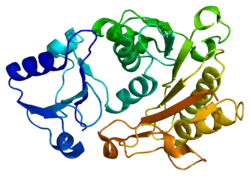 | |||||||||||||||||||||||||||||||||||||||||||||||||||
| |||||||||||||||||||||||||||||||||||||||||||||||||||
| Identifiers | |||||||||||||||||||||||||||||||||||||||||||||||||||
| Aliases | NSUN5, NOL1, NOL1R, NSUN5A, WBSCR20, WBSCR20A, p120, p120(NOL1), NOP2/Sun RNA methyltransferase family member 5, NOP2/Sun RNA methyltransferase 5 | ||||||||||||||||||||||||||||||||||||||||||||||||||
| External IDs | OMIM: 615732 MGI: 2140844 HomoloGene: 6828 GeneCards: NSUN5 | ||||||||||||||||||||||||||||||||||||||||||||||||||
| |||||||||||||||||||||||||||||||||||||||||||||||||||
| |||||||||||||||||||||||||||||||||||||||||||||||||||
| |||||||||||||||||||||||||||||||||||||||||||||||||||
| |||||||||||||||||||||||||||||||||||||||||||||||||||
| |||||||||||||||||||||||||||||||||||||||||||||||||||
| Wikidata | |||||||||||||||||||||||||||||||||||||||||||||||||||
| |||||||||||||||||||||||||||||||||||||||||||||||||||
Putative methyltransferase NSUN5 is an enzyme that in humans is encoded by the NSUN5 gene.[5][6][7]
This gene encodes a protein with similarity to p120 (NOL1), a 120-kDa proliferation-associated nucleolar antigen that is a member of an evolutionarily conserved protein family. This gene is deleted in Williams syndrome, a multisystem developmental disorder caused by the deletion of contiguous genes at 7q11.23. Alternative splicing of this gene results in two transcript variants encoding different isoforms.[7]
References
- 1 2 3 GRCh38: Ensembl release 89: ENSG00000130305 - Ensembl, May 2017
- 1 2 3 GRCm38: Ensembl release 89: ENSMUSG00000000916 - Ensembl, May 2017
- ↑ "Human PubMed Reference:". National Center for Biotechnology Information, U.S. National Library of Medicine.
- ↑ "Mouse PubMed Reference:". National Center for Biotechnology Information, U.S. National Library of Medicine.
- ↑ Doll A, Grzeschik KH (Apr 2002). "Characterization of two novel genes, WBSCR20 and WBSCR22, deleted in Williams-Beuren syndrome". Cytogenet Cell Genet. 95 (1–2): 20–7. doi:10.1159/000057012. PMID 11978965. S2CID 21992204.
- ↑ Merla G, Ucla C, Guipponi M, Reymond A (Jun 2002). "Identification of additional transcripts in the Williams-Beuren syndrome critical region". Hum Genet. 110 (5): 429–38. doi:10.1007/s00439-002-0710-x. PMID 12073013. S2CID 29964959.
- 1 2 "Entrez Gene: NSUN5 NOL1/NOP2/Sun domain family, member 5".
Further reading
- Sanger Centre, The; Washington University Genome Sequencing Cente, The (1999). "Toward a complete human genome sequence". Genome Res. 8 (11): 1097–108. doi:10.1101/gr.8.11.1097. PMID 9847074.
- Stanchi F, Bertocco E, Toppo S, et al. (2001). "Characterization of 16 novel human genes showing high similarity to yeast sequences". Yeast. 18 (1): 69–80. doi:10.1002/1097-0061(200101)18:1<69::AID-YEA647>3.0.CO;2-H. PMID 11124703. S2CID 21397515.
- Strausberg RL, Feingold EA, Grouse LH, et al. (2003). "Generation and initial analysis of more than 15,000 full-length human and mouse cDNA sequences". Proc. Natl. Acad. Sci. U.S.A. 99 (26): 16899–903. Bibcode:2002PNAS...9916899M. doi:10.1073/pnas.242603899. PMC 139241. PMID 12477932.
- Hillier LW, Fulton RS, Fulton LA, et al. (2003). "The DNA sequence of human chromosome 7". Nature. 424 (6945): 157–64. Bibcode:2003Natur.424..157H. doi:10.1038/nature01782. PMID 12853948.
- Ota T, Suzuki Y, Nishikawa T, et al. (2004). "Complete sequencing and characterization of 21,243 full-length human cDNAs". Nat. Genet. 36 (1): 40–5. doi:10.1038/ng1285. PMID 14702039.
- Beausoleil SA, Jedrychowski M, Schwartz D, et al. (2004). "Large-scale characterization of HeLa cell nuclear phosphoproteins". Proc. Natl. Acad. Sci. U.S.A. 101 (33): 12130–5. Bibcode:2004PNAS..10112130B. doi:10.1073/pnas.0404720101. PMC 514446. PMID 15302935.
- Gerhard DS, Wagner L, Feingold EA, et al. (2004). "The status, quality, and expansion of the NIH full-length cDNA project: the Mammalian Gene Collection (MGC)". Genome Res. 14 (10B): 2121–7. doi:10.1101/gr.2596504. PMC 528928. PMID 15489334.
This article is issued from Wikipedia. The text is licensed under Creative Commons - Attribution - Sharealike. Additional terms may apply for the media files.
